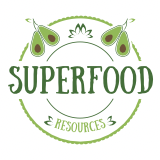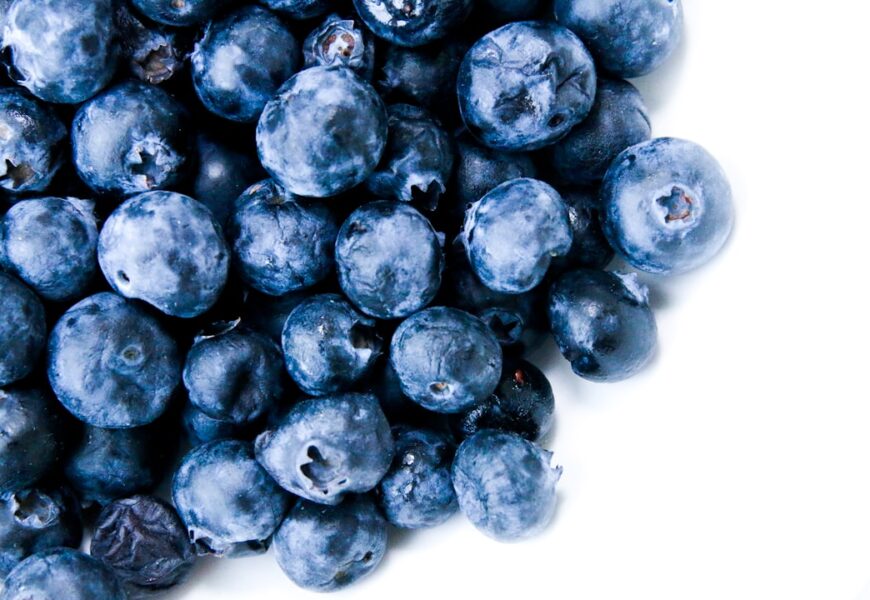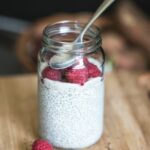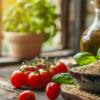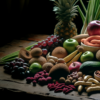Best Ways to Reduce Food Waste with Superfoods
Introduction
Are you looking for ways to eat healthier while also caring for the planet? Combating food waste is a crucial step towards sustainable living, and believe it or not, superfoods can play a significant role in this initiative. These nutrient-packed ingredients not only boost your health but can also help you reduce waste in creative and effective ways. From using every bit of your avocados to finding a purpose for those beet greens, this blog will guide you through the best practices to utilize superfoods to their fullest potential while minimizing waste. Let’s explore how you can transform your eating habits into a force for good!
Understanding Food Waste

Statistics on Food Waste
Every year, it’s estimated that one-third of all food produced globally is wasted, totaling about 1.3 billion tons. In the United States alone, around 40% of food is thrown away. This wastage occurs throughout the food chain, from farms and factories to supermarkets and homes. The impact is not just a loss of food but also a significant waste of resources such as water, land, and energy that were used in the production, harvesting, transporting, and packaging processes.
Impact of Food Waste on the Environment
Food waste contributes significantly to environmental problems, notably climate change. When food is disposed of in landfills, it decomposes and produces methane, a potent greenhouse gas that is 21 times more harmful than carbon dioxide. The decomposition process also uses up oxygen, leading to the creation of harmful compounds that can leach into soil and groundwaters. Additionally, the wasted food represents a loss of valuable biomass that could have been used to regenerate soil or feed animals. Reducing food fil waste could dramatically decrease the pressure on our environment and help sustain our natural resources for future generations.
The Concept of Superfoods
Definition of Superfoods
Superfoods are nutrient-rich foods considered to be especially beneficial for health and well-being. While there is no scientific definition of a “superfood,” the term typically refers to foods that offer high levels of desirable nutrients, are linked to the prevention of disease, or are believed to offer additional health benefits beyond their nutritional value. These foods, like blueberries, salmon, kale, and acai, are not only packed with vitamins, minerals, and antioxidants but are also beloved for their ability to enhance diet and lifestyle.
Benefits of Incorporating Superfoods in Diet
Including superfoods in your diet can have a multitude of health benefits. They are packed with powerful antioxidants which help combat inflammation and reduce the risk of developing chronic diseases such as heart disease, arthritis, and cancer. Superfoods are also instrumental in boosting the immune system, enhancing skin health, and promoting weight management. Additionally, many superfoods are versatile and easy to incorporate into various meals, helping to minimize food preparation waste. For example, broccoli stems can be used in stir-fries or soups rather than being thrown away, and overly ripe fruits can be transformed into smoothies or baking recipes. This adaptability makes superfoods a practical and effective way to reduce food waste while still nourishing your body with high-quality nutrients.
Superfoods That Help Reduce Food Waste
Avocado
Avocados are not only packed with nutrients but are also versatile in the kitchen, which reduces the likelihood of them being thrown out. Even overly ripe avocados can be used in various recipes beyond just guacamole. They can be blended into smoothies, used as a spread on toast, or even incorporated into desserts and salad dressings. Simply storing avocados correctly extends their life; for instance, placing an unripe avocado next to bananas helps it ripen faster, while keeping ripe avocados in the refrigerator slows down the ripening process.
Sweet Potato
Sweet potatoes are incredibly hardy and have a longer shelf life than many other vegetables, making them ideal for reducing food waste. They are versatile in their usage—you can bake, roast, mash, or blend them into soups. The entire vegetable can be used, including the skin, which is rich in fiber and nutrients. Sweet potatoes can be stored in a cool, dark place for up to a month, maximizing their usage and minimizing waste.
Banana
Bananas are a prime example of a superfood that can be used in its entirety, thus minimizing waste. Overripe bananas are perfect for baking, making them the go-to ingredient for banana bread, muffins, and pancakes. Besides, the peels can be utilized in plant care as a natural fertilizer. To prolong their shelf life, keep bananas away from other fruit to avoid premature ripening, and store them in a cool, dry place.
Broccoli
Broccoli stems are often discarded, despite having the same nutritional benefits as the florets. These stems can be peeled and used in dishes such as stir-fries, soups, and slaws. Broccoli can be kept fresh in the refrigerator for longer by wrapping it in damp paper towels and storing it in an open plastic bag. This keeps the broccoli hydrated and crisp until you’re ready to use it.
Nutritional Benefits of Superfoods
Nutrients present in superfoods
Superfoods are not just beneficial for sustainability; they are also nutrition powerhouses. Foods like avocados contain high levels of monounsaturated fats, which are important for heart health. Sweet potatoes are a rich source of vitamin A, necessary for visual health and immune function. Bananas provide ample potassium, crucial for muscle function and maintaining healthy blood pressure levels. Broccoli is loaded with vitamin C, vitamin K, iron, and fiber, supporting everything from immune health to digestion.
Health benefits of consuming superfoods
The diverse range of nutrients found in superfoods translates into a multitude of health benefits. Consuming these foods can help improve cardiovascular health, enhance eye health, boost digestive health, and bolster the immune system. The high fiber content in foods like broccoli and sweet potatoes aids in digestion and can also help to maintain a healthy weight. The antioxidants present in these superfoods help combat free radicals, reducing oxidative stress and inflammation in the body. Overall, incorporating superfoods into your diet not only helps reduce food waste but also contributes to a healthier lifestyle.
Sustainable Eating Practices
Importance of Sustainable Eating
Sustainable eating isn’t just about choosing foods that are good for our own health—it’s about making choices that benefit the world around us. By focusing on sustainable eating, we aim to minimize environmental impact, improve food security, and ensure that future generations can also enjoy our planet’s bounty. This practice emphasizes the need for a balanced ecosystem and supports agricultural methods that are less harmful to the environment.
Tips for Reducing Food Waste at Home
Reducing food waste at home can start with small, manageable steps that make a big difference over time. Here are some practical tips:
– Plan Your Meals: By planning meals ahead, you only buy what you need, minimizing the risk of over-purchasing.
– Store Food Properly: Understand how to store fruits and vegetables properly to extend their freshness.
– Use What You Have: Check what ingredients you already have before buying more. Getting creative with leftovers can lead to delicious results!
– Compost: Composting food scraps turns waste into a resource, providing nutrient-rich soil for garden plants.
Recipes Using Superfoods to Minimize Waste
Avocado Toast with Leftover Vegetables
Avocado toast, a trendy and nutritious dish, can be a delightful way to use up leftover vegetables. Start with whole-grain bread for a hearty base, mash ripe avocado on top, and then sprinkle on your leftover veggies—anything from roasted peppers to sautéed greens. Season with salt, pepper, and a drizzle of olive oil, and you’ve turned potential waste into a gourmet breakfast or lunch.
Sweet Potato Skins with Toppings
Don’t toss those sweet potato skins! They’re packed with fiber and can be transformed into a tasty treat. Bake the skins until crispy, then top with a light spread of Greek yogurt, a sprinkle of chives, and a dash of smoked paprika. This dish uses the whole vegetable, reducing waste and maximizing your intake of nutrients.
Banana Smoothie with Fruit Scraps
Bananas, with their natural sweetness, make the perfect base for a nutritious smoothie. Take your overripe bananas and any fruit scraps like apple cores or berry leftovers, blend with a bit of almond milk or yogurt, and a spoonful of flaxseeds for an extra nutrition boost. This smoothie is a fantastic way to utilize fruit that might otherwise be discarded.
Broccoli Stem Salad
Broccoli stems often end up in the trash, but they’re just as nutritious as the florets. Peel the outer layer of the stems and slice them thinly to create a crunchy and refreshing salad base. Add carrots, cabbage, and a light dressing of olive oil and lemon juice for a nutrient-packed dish that reduces waste and tastes delicious.
Incorporating Superfoods in Everyday Meals

Breakfast ideas
Kickstart your morning with energy-boosting superfoods that minimize food waste. Whip up a quick smoothie using overripe bananas, spinach, frozen berries, and a scoop of chia seeds. Not only does this use up fruits that might otherwise be discarded, but it also provides you with a high dose of antioxidants and fiber. Another excellent breakfast idea is oatmeal topped with a sprinkle of flaxseeds, a handful of nuts, and any fruit nearing its last leg. These toppings add texture and vital nutrients, making a simple breakfast extraordinarily healthful and waste-conscious.
Lunch suggestions
For lunch, prepare a vibrant quinoa salad packed with leftover roasted vegetables and dressed with a lemon-tahini sauce. Quinoa is a superb superfood, rich in protein and all nine essential amino acids, and it’s perfect for bringing new life to leftover veggies. Alternatively, try assembling wraps with whole wheat tortillas filled with hummus, kale or spinach (great for using up greens that are about to wilt), and slices of avocado. It’s a deliciously quick way to eat nutritiously while tackling food waste.
Dinner recipes
Dinner time offers a fantastic opportunity to integrate superfoods like sweet potatoes and lentils into hearty meals that curb food waste. Bake a batch of sweet potatoes and stuff them with a lentil mixture seasoned with garlic, onions, and a pinch of turmeric. This not only uses a range of essential and leftover ingredients but also pumps up your meal’s nutritional value. You can also stir-fry broccoli stems (often discarded) with other veggies and tofu for a quick and healthy stir-fry, perfect for using smaller bits of vegetables and boosting your intake of plant-based protein.
Conclusion
Incorporating superfoods into your daily diet is not just a step towards healthier living, but it’s also an impactful way to reduce food waste. By choosing versatile, nutrient-rich superfoods like quinoa, chia seeds, and kale, we can make the most of each item we purchase. These ingredients not only allow for a variety of dishes but also have longer shelf lives, which helps minimize waste. Let’s make conscious choices to support both our health and the environment by optimizing the way we use superfoods in our kitchens. Together, we can make a significant difference in promoting sustainable eating habits.
